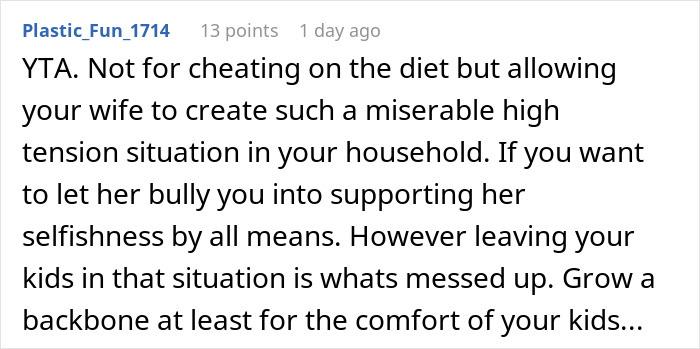More people are choosing to become vegetarian or vegan for a variety of reasons, whether for health, environmental concerns, or personal beliefs. It’s an important choice, but it can lead to challenges when it doesn’t align with the eating habits of those around you.
One dad shared on Reddit how his wife’s new vegetarian lifestyle started causing tension in their home. While she was away on a trip, he and their kids secretly ate meat, leading to a heated argument that tested their family’s unity.
Read the full story below, and don’t miss our conversation with psychologist Sabina Nazarova on how to manage diet differences in relationships.
The man’s wife adopted a vegetarian diet and hoped the family would support her decision

Image credits: Alyson McPhee / unsplash (not the actual photo)
However, the husband and kids secretly ate meat while she was away, only to be caught when she returned







Image credits: Nadine Primeau / unsplash (not the actual photo)







Image credits: Anna Shvets / pexels (not the actual photo)


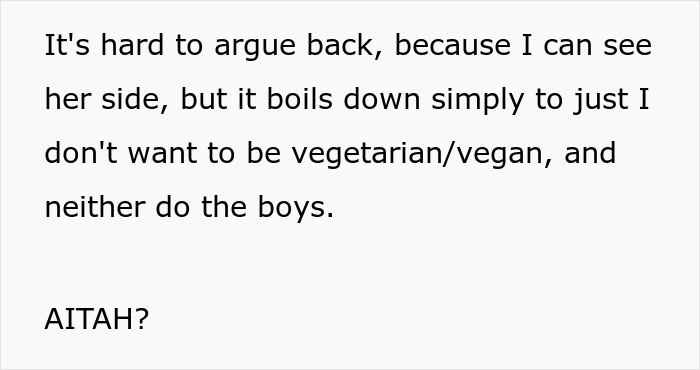
Image credits: Total-Dingo5709
Changing your habits to match someone else’s diet is not that easy
Food-related conflicts in families are rarely just about what’s on the plate, says Sabina Nazarova, a psychologist and vegan, in her conversation with Bored Panda.
“These issues might seem simple at first but can quickly get tricky, especially with kids involved,” Nazarova explains. “Change is inherently challenging, and adapting to someone else’s changes—even for someone you love deeply—can be even more difficult. It’s not just about food; it’s about the values and routines that hold a family together.”
What starts as a minor inconvenience—like cooking different meals or buying separate groceries—can disrupt the flow of daily life. “Different eating habits can lead to mismatched energy levels, making it tough for couples to sync their activities or enjoy time together. Social situations can become awkward too, like picking a restaurant or attending events. If these differences aren’t managed well, they can slowly build up and create stress, affecting the harmony in the relationship.”
Dietary changes can also create deeper emotional divides within a family. Nazarova notes that when one person imposes new eating habits on everyone else, it can lead to frustration or confusion, particularly among children. “Kids might not understand why one parent’s beliefs differ so much from the other’s, which can make them feel conflicted or unsure about what’s ‘right’ or ‘wrong,’” she says.
She also points out that asking children to hide their eating habits or go against one parent’s values can cause cognitive dissonance. “When kids are caught between two different sets of expectations, it can create a sense of discomfort and mistrust,” Nazarova explains. This can affect their sense of honesty and openness within the family, making it harder for them to form their own identities.
For the family whose story ended up on Reddit, Nazarova offers some thoughtful advice.
For the wife, Nazarova suggests recognizing that her husband and children have their own food preferences and values. “It’s crucial to find a balance that respects everyone’s choices,” she says. “Think about whether there’s room for some flexibility in how strictly you want to enforce these new values, especially with your children,” Nazarova adds.
For the husband, she stresses the need to acknowledge his wife’s commitment to her new lifestyle. “Supporting her doesn’t mean you have to give up your own values,” she says. “Finding a middle ground, like designating specific meals or days for vegetarian options while allowing meat on others, can help. Talk openly with your wife about your concerns and work together to find a solution. Also, think about the example you’re setting for your children by modeling respectful compromise.”
Nazarova believes that with honest dialogue and empathy, families can navigate these conflicts. “If everyone is willing to listen and adapt, this challenge could even bring you closer together,” she concludes.
Many Redditors felt the wife was overstepping by trying to have the whole family follow her new lifestyle


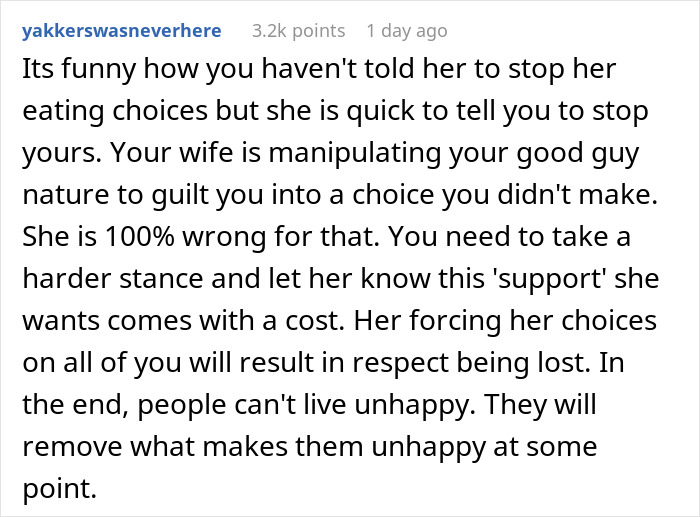


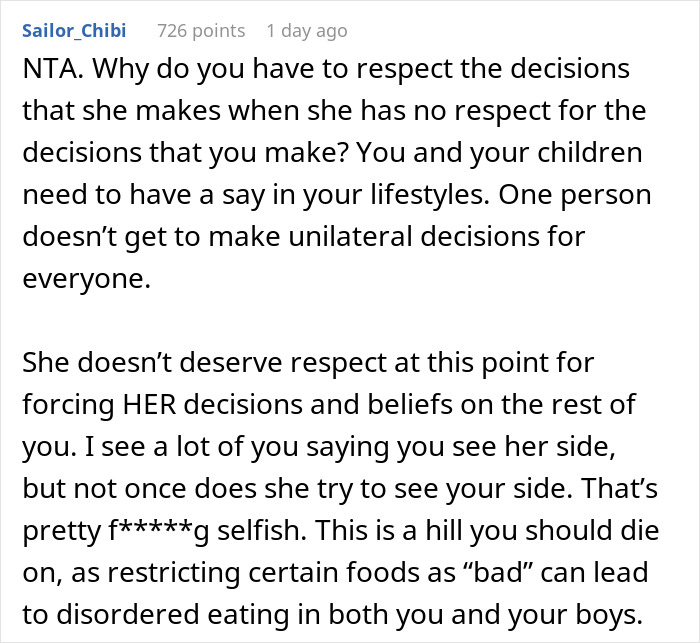
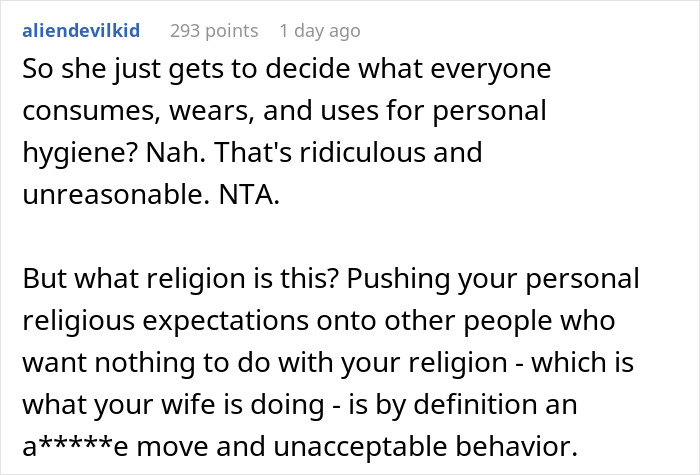

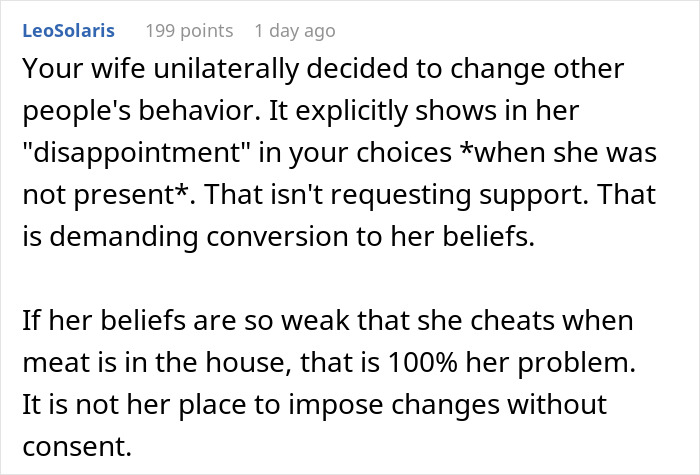
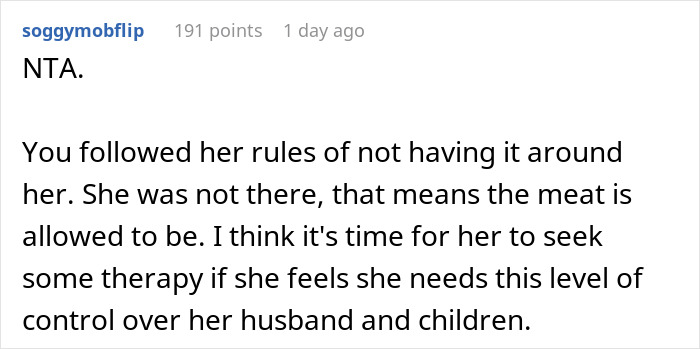
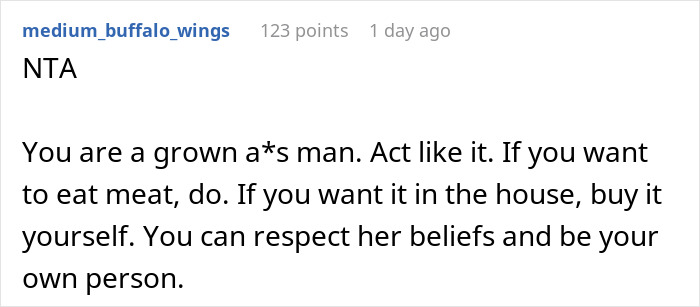

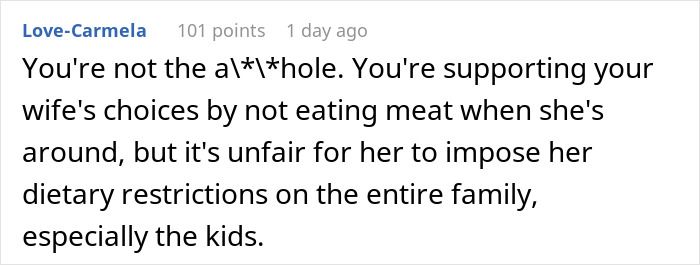


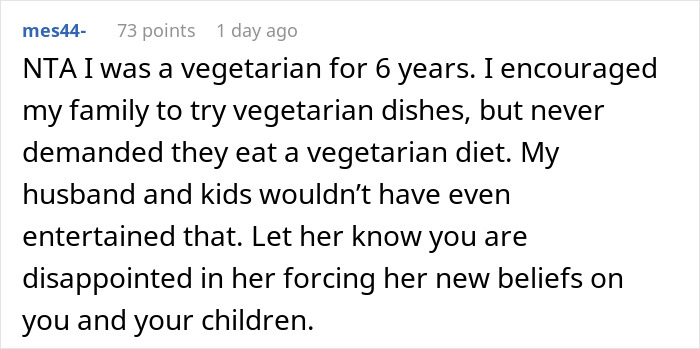
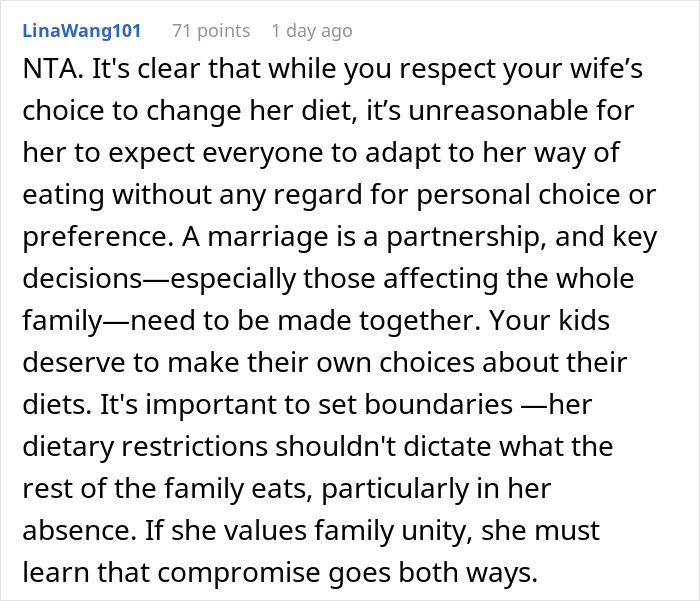
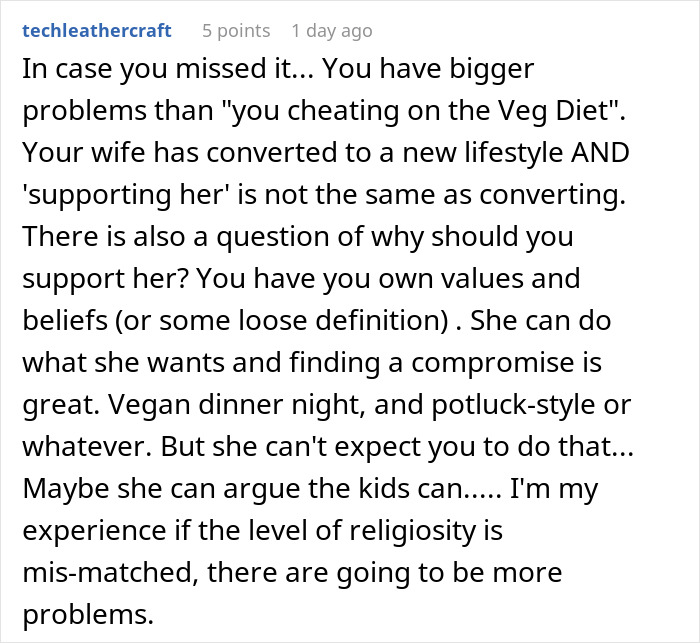
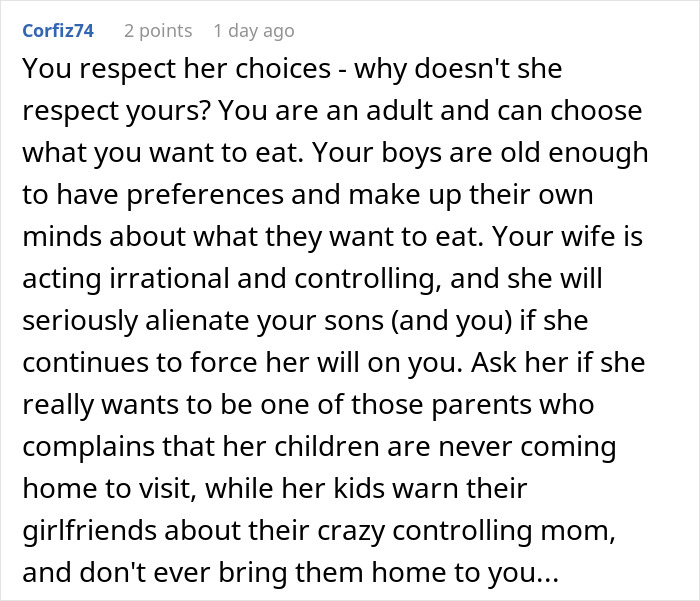
One person said that both the husband and wife were in the wrong
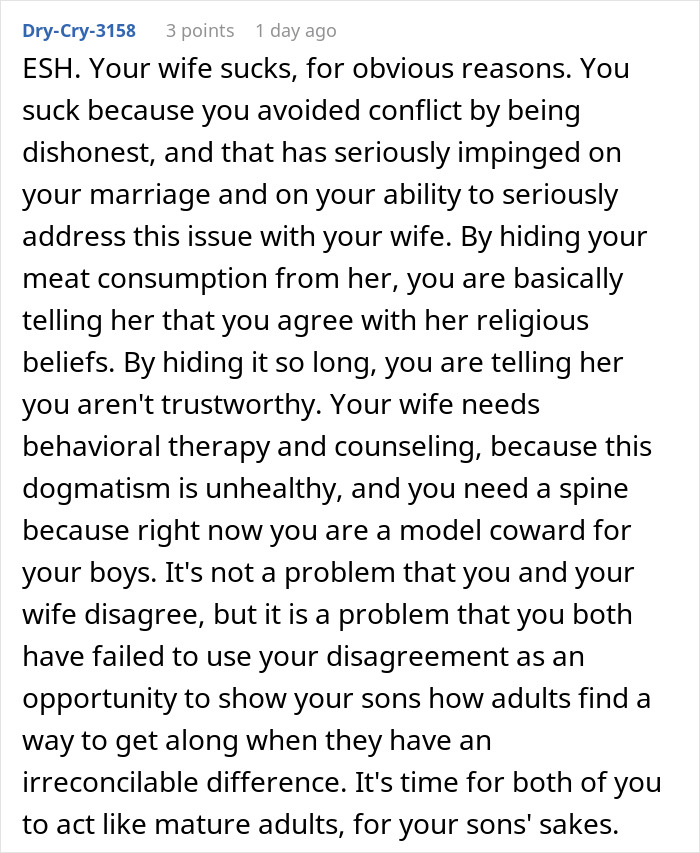
Some people criticized the husband for letting the situation go on for so long without addressing the issue directly

